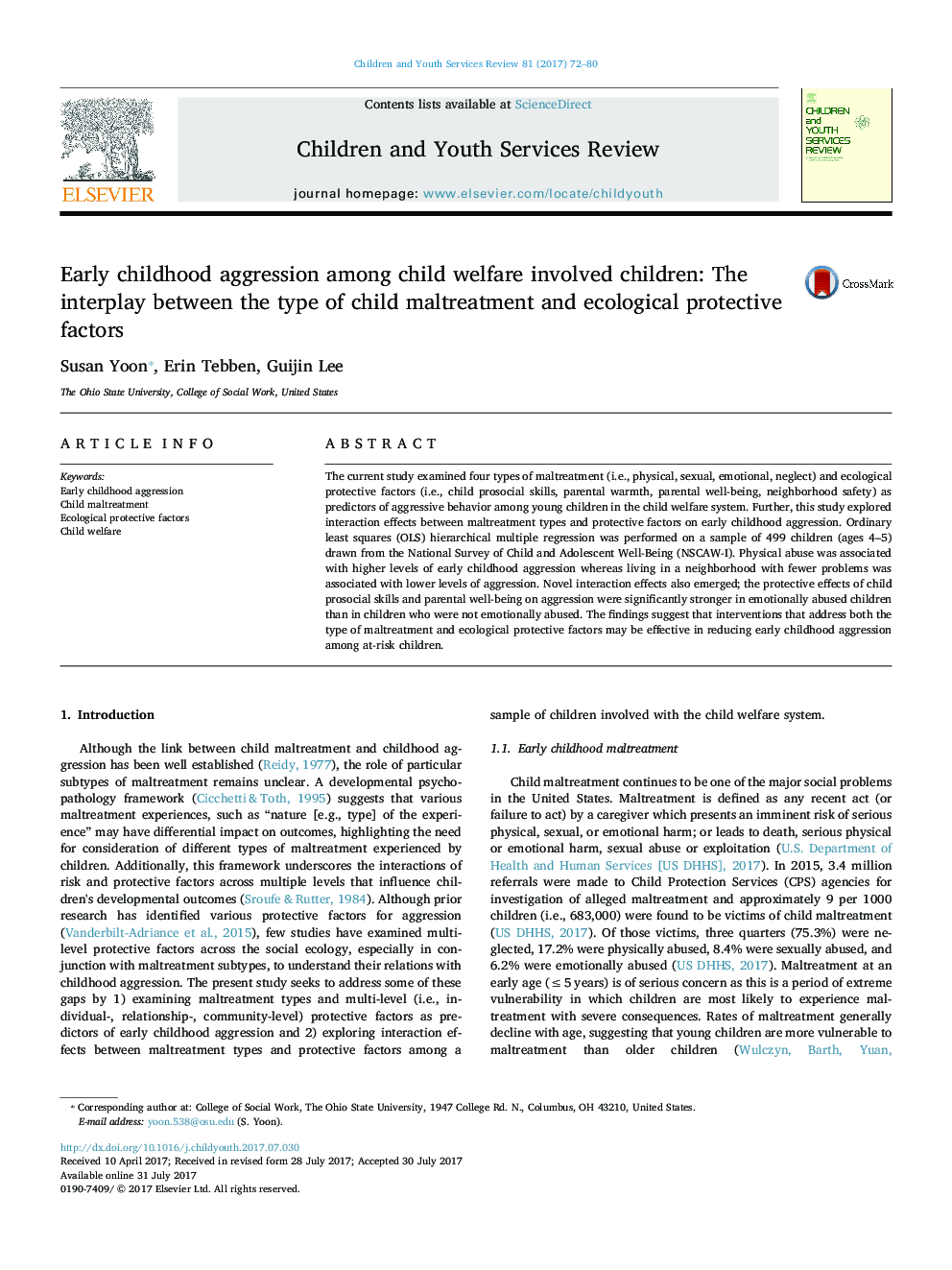| Article ID | Journal | Published Year | Pages | File Type |
|---|---|---|---|---|
| 4936247 | Children and Youth Services Review | 2017 | 9 Pages |
Abstract
The current study examined four types of maltreatment (i.e., physical, sexual, emotional, neglect) and ecological protective factors (i.e., child prosocial skills, parental warmth, parental well-being, neighborhood safety) as predictors of aggressive behavior among young children in the child welfare system. Further, this study explored interaction effects between maltreatment types and protective factors on early childhood aggression. Ordinary least squares (OLS) hierarchical multiple regression was performed on a sample of 499 children (ages 4-5) drawn from the National Survey of Child and Adolescent Well-Being (NSCAW-I). Physical abuse was associated with higher levels of early childhood aggression whereas living in a neighborhood with fewer problems was associated with lower levels of aggression. Novel interaction effects also emerged; the protective effects of child prosocial skills and parental well-being on aggression were significantly stronger in emotionally abused children than in children who were not emotionally abused. The findings suggest that interventions that address both the type of maltreatment and ecological protective factors may be effective in reducing early childhood aggression among at-risk children.
Keywords
Related Topics
Health Sciences
Medicine and Dentistry
Perinatology, Pediatrics and Child Health
Authors
Susan Yoon, Erin Tebben, Guijin Lee,
